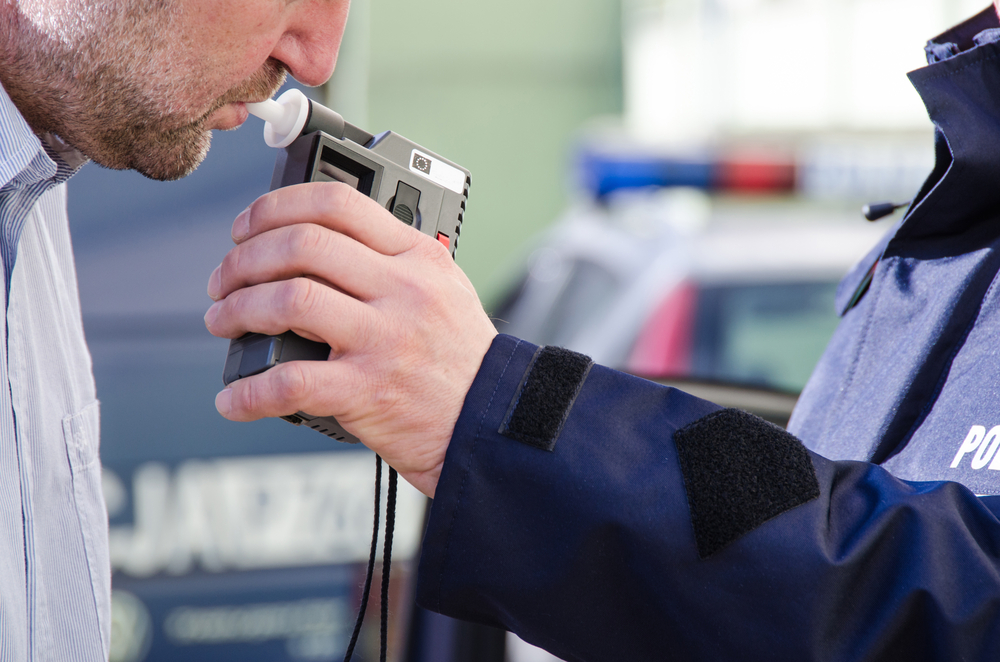The Walk and Turn and One Leg Stand: A Primer on the Psycho-Motor DUI FSTs
March 15, 2021
The Psycho-motor Field Sobriety Test


A psycho-motor field sobriety test is an exercise that law enforcement uses to determine whether or not a driver is impaired by drugs or alcohol. Field sobriety tests often have a litany of possible variables, so if you took a field sobriety test when you were arrested for DUI, you need to contact a Fairfax DUI lawyer.
The Walk-and-Turn Test
During the walk-and-turn test, you are asked to walk heel-to-toe for nine steps on a straight line. At the end, you must turn in the prescribed manner, and walk nine steps back heel-to-toe on the same straight line. While you do this, you must count each step out loud and keep your hands by your sides. This test can be performed on an actual highway marking line, but is often conducted on an imaginary line.
Before you even begin the test, the law enforcement officer will make a note if you cannot keep your balance while you are hearing his or her instructions. They will also note if you are able to maintain the heel-to-toe formation, if you started too soon, or if you had difficulty understanding the instructions. During the performance of the test, they will look for if you failed to walk heel-to-toe, if you have stepped off of the line, if you took the right number of steps, if you raised your arms for balance, if you turned in the prescribed manner, etc.
One Leg-Stand Test
During the one leg stand test, you are required to raise your leg approximately six inches off the ground. Then, you must remain in this position while counting in a prescribed manner for approximately 30 seconds.
The law enforcement officer will be observing your behavior before you even start the test. Like with the walk and turn, he or she will take note if during the instructional phase you sway, fail to understand the instructions, or start too soon. During the performance of the test, he or she will look to see if you count in the prescribed manner, sway, use your arms for balance, put your foot down, hop, etc.
The Failings of Field Sobriety Tests
Field sobriety tests are completely voluntary, which means that you do not have to do them if you feel uncomfortable doing so. If you took a field sobriety test, your Fairfax County DUI lawyers can challenge the officer’s observations by pointing out the variables associated with them. Your Virginia criminal defense attorney knows that there are three basic issues working against field sobriety tests. For example, the officer may have provided improper or confusing instructions or your performance could be the fault of something other than intoxication.
Your criminal defense lawyer Fairfax VA will also make sure that the officer performed the test correctly under sufficient. According to the NHTSA, field sobriety tests must only be administered under specific circumstances. Perhaps the administration of your tests fell short of this.
Your criminal defense attorney Fairfax VA is aware that you may have failed the field sobriety test but that they may still fall short of demonstrating your lack of sobriety. There are several variables that your attorney will consider when reviewing the performance of these tests.
The reason that you failed your field sobriety test may not have been because of the drink you had three hours ago, but your Fairfax criminal attorney will hypothesize why you failed the test. You may have been experiencing an undue amount of stress. It’s difficult to follow instructions when you are thinking that you might lose your job and your license and may even have a criminal record when it is all over. On top that, you may have a medical condition that may have prevented you from passing the test.
Field sobriety tests are not mandatory. If you took a field sobriety test and failed, contact us at Rudolphi Law. We can analyze your performance on your field sobriety test and devise a strategy for your case. Contact us today.
